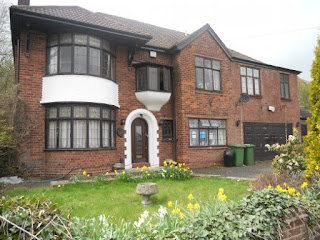Tenancy agreement
As a student, it is more important than ever that you understand exactly
what your rights are when you’re paying your rent to a landlord or letting
agent. All landlords will charge a varied amount for the student accommodation
that they offer and will provide you with a tenancy agreement before you move
in, this should state the agreed rent and the rules that need to be followed by
both parties, having a good knowledge of your tenancy agreement can only work
in your favour. Your agreement will also tell you your allotted time at your
accommodation, this time will be more than likely a year for a university
student. Finally, your agreement will contain the rules that are set out, this
can change depending on the landlord and the property. These rules can include
any of the following; maintenance, allowance of pets and what a tenant can and
cannot change (e.g. painting, wall mounts).
Rent Deposits
The majority of landlords and lettings agents ask that their tenants pay
a deposit when they let a property to them. This deposit acts as security
against non-payment of rent and damage. However, it is important to remember
that that deposit should be returned. If the tenants failed to leave the
property in a clean and respectable condition prior to vacating, the landlord
will deduct as much as is required to fix or clean the property.
It is possible that a situation could occur in which a landlord feels
justified in refusing to give the tenants deposit back, even if the property
was left as it was found. A useful tip for new tenants at a property is to
ensure you have photographic evidence of the state that the property was found
in. That way, if it comes to it, you can prove that you left the property in
the same state as it was found.
Additionally, a scheme was put into place in England and Wales in 2007
that is a huge benefit to tenants. This scheme offers protection to tenants’
deposits regarding assured shorthold tenants.
It is mandatory for the landlord to use a tenancy deposit protection
scheme to safeguard the deposit that’s been paid when renting accommodation.
As a result, if the landlord has no need to make deductions due to any
damage to the property that may have been caused, you should find the process
by which you get your deposit back at the finish of your tenancy much less
difficult.
Repairs
It is the legal responsibility of the landlord to adequately maintain
your home, and, as a tenant, you have the right for your rented home to be kept
in a state of repair that is reasonable. This includes the interior of the
building, such as toilets, drains, sinks and gas appliances as well as external
doors, windows, walls and roofs.
Repairs and Tenant Rights
You should contact your landlord if you notice that any repairs are
required on your rented property. You should do this in writing and provide a
deadline for completing these repairs. Due to your tenant rights, you have the
option of taking the issue further as a way of forcing your landlord to
complete the repairs if he or she unreasonably delays or refuses to complete the repairs.
There may be the possibility of you being able to take court action.
Also, if the situation arises whereby the disrepair is creating a serious
health and safety risk, you can contact the Environmental Health Department of
your local council. It may be reasonable in some instances to make the
arrangements yourself for the repairs to be carried out before claiming the
costs later.
It is worth
pointing out though, that prior to you talking action in response to the
disrepair in your accommodation, you should read through your tenancy
agreement. Given that putting in a request for repairs to be carried out can
make it easier for landlords to end certain tenancy agreements, you could face
the prospect of being without your home.
Responsibilities, Rights and Shorthold Tenancies
The rights and responsibilities of the tenant and landlord are listed in
the contract that is agreed upon when you begin renting your property as a
tenant. Your legal rights will be determined by the nature of the tenancy
agreement, that exists between you and your landlord.
Tenancy agreements come in a range of various types. Most of these
tenancy agreements state which specific type they are. In England and Wales,
the majority of tenancies entered into on or subsequent to 28th
February, will be shorthold tenancies. This form of tenancy has these
characteristics:
- The property must be the main home for
at least one of the tenants.
- The tenants must be individuals.
- The tenants are free to use the
property as their own (meaning that other people, including the landlord
should not be using or treating the property as their own).









































